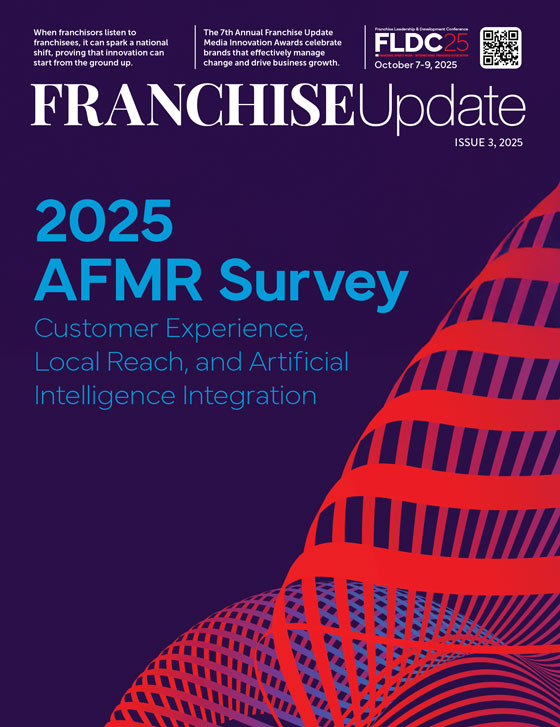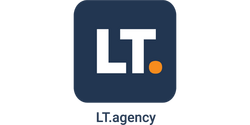Fast Track to Know-How: Microlearning Reaches Employees Where They Are

Long gone are the days of sitting employees in front of a screen and having them watch hours and hours of a talking head on a training video. Reading training manuals is also yesterday’s news. This is not just a generational trend. The way employees learn, retain, and consume information has evolved.
Whether that is education, entertainment, or headline news, people prefer video and audio to reading. Studies show that book readership and long-form article consumption have declined, especially among younger audiences. People are more likely to skim than read deeply. Attention spans are shorter, and scrolling is the new norm.
According to Cisco, video accounts for more than 80% of global internet traffic. Podcast listenership has skyrocketed with more than 42% of Americans listening monthly, and it’s even higher among younger demographics. Platforms like Spotify, Apple Podcasts, and Audible are fueling the shift.
People can listen to audio content while driving, working out, or cooking. Video delivers immediate engagement and storytelling with faces, movement, music, and emotion. TikTok, Instagram Reels, and YouTube Shorts condition us to consume fast, visual bites of content.
On trend
Microlearning is the hottest trend in professional development. Microlearning is an educational approach that delivers content in short, focused segments, typically lasting less than five minutes. These concise learning units are designed to address specific training, making them digestible and accessible at the learner’s convenience.
Microlearning fits busy schedules and boosts engagement and knowledge retention by breaking learning into bite-sized units. Modern workforces benefit from on-demand, mobile-friendly, and easily digestible training. Organizations leverage microlearning to continuously upskill their staff without pulling them away from day-to-day interactions. Microlearning can improve empathy, communication, problem-solving, and executing your brand’s CX standards in customer-facing roles.
A successful microlearning program uses engaging, varied content formats to hold learners’ attention and reinforce skills. Rather than lectures, companies are adopting interactive and multimedia elements in short bursts.
Quizzes and flash drills
Many companies incorporate brief quizzes or flashcard-style Q&A into microlearning. These knowledge checks reinforce learning through active recall and give immediate feedback. Spaced-repetition quizzes delivered daily or weekly can dramatically improve the retention of customer service knowledge. For example, employees might get a five-question quiz each day reviewing service standards. This keeps important information fresh and identifies areas for improvement.
Gamified learning
Turning training into a game adds motivation and competition. Microlearning platforms often award points, badges, or leaderboards for completed modules and quiz performance. Gamification makes learning fun, friendly, and competitive, spurring employees to stay engaged and revisit training to beat their own or peers’ scores.
Gamified microlearning can boost participation rates as employees enjoy earning rewards and seeing their progress. Southeastern Grocers introduced a gamified microlearning platform that let store employees earn digital trophies, resulting in higher voluntary participation. Gamified challenges on customer service topics can encourage repetition until mastery, which translates to better service on the job.
ROI
Microlearning produces tangible improvements in both learning outcomes and customer experience metrics. Because microlearning platforms track frequent engagement and assessments, companies can gather data to evaluate impact. Across industries, organizations have reported significant gains from switching to microlearning-based CX training.
Engagement rates
The user-friendly nature of microlearning leads to better participation than lengthy courses. Retailer Pet Supermarket saw an average 79% training completion rate after introducing microlearning, which was 49% higher than the industry average. Employees welcomed the format, and 89% of Pet Supermarket’s staff reported they enjoyed being upskilled via short, social-media-style lessons.
Walmart achieved a 90% completion rate within 30 days of launching nanolearning modules on its app. It’s an unprecedented result compared to traditional training completion. These metrics indicate that employees are starting and finishing their required CX training when it’s delivered in micro chunks likely because it feels manageable and engaging. When training engagement climbs, employees stay informed and skilled, translating to consistent customer service on the front line.
Retention and accuracy
Microlearning’s design (spaced repetition, reinforcement, quizzes) leads to better retention of information and less skill fade. Companies often measure this via pre- and post-quizzes or on-the-job knowledge checks. In Vrbo’s case, rolling out daily microlearning led to 89% of their customer service reps improving their scores and accuracy on post-assessments. This kind of improvement is critical in CX: Better-informed employees make fewer mistakes. It also indicates that microlearning can close knowledge gaps (e.g., understanding new features, updated procedures) more efficiently than older training methods.
Performance
The ultimate test of any CX training is its effect on customer outcomes. Microlearning has been linked to measurable improvements in service quality. Walmart reported that after implementing micro/nanolearning, customer satisfaction scores jumped by 10%. This suggests that better-trained, more confident associates translate to happier customers likely through quick assistance, product knowledge on the floor, and consistent service behaviors. In call centers, knowledge gained from microlearning often reduces average handling time and increases resolution rates. Vrbo’s microlearning program led to a five-second reduction in average time per call for their customer support reps.
John DiJulius III, author of The Customer Service Revolution, is president of The DiJulius Group, a customer service consulting firm that works with companies, such as Starbucks, Chick-fil-A, Ritz-Carlton, Nestle, PwC, Lexus, and many more. Contact him at 216-839-1430 or [email protected]
Share this Feature
Recommended Reading:
| ADVERTISE | SPONSORED CONTENT |
FRANCHISE TOPICS
- Multi-Unit Franchising
- Get Started in Franchising
- Franchise Growth
- Franchise Operations
- Open New Units
- Franchise Leadership
- Franchise Marketing
- Technology
- Franchise Law
- Franchise Awards
- Franchise Rankings
- Franchise Trends
- Franchise Development
- Featured Franchise Stories
FEATURED IN

Franchise Update Magazine: Issue 3, 2025








 The franchise listed above are not related to or endorsed by Franchise Update or Franchise Update Media Group. We are not engaged in, supporting, or endorsing any specific franchise, business opportunity, company or individual. No statement in this site is to be construed as a recommendation. We encourage prospective franchise buyers to perform extensive due diligence when considering a franchise opportunity.
The franchise listed above are not related to or endorsed by Franchise Update or Franchise Update Media Group. We are not engaged in, supporting, or endorsing any specific franchise, business opportunity, company or individual. No statement in this site is to be construed as a recommendation. We encourage prospective franchise buyers to perform extensive due diligence when considering a franchise opportunity.